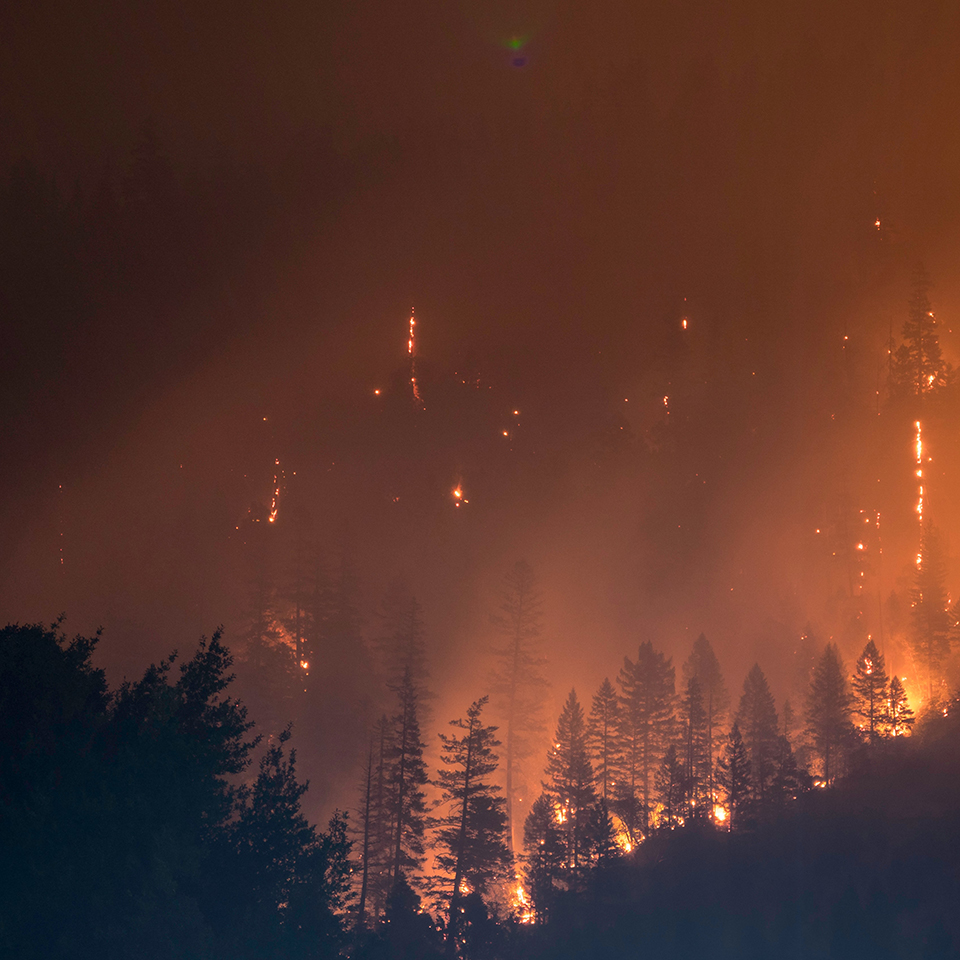In the midst of a global pandemic and extreme civil unrest in the United States, is it alarmist or conspiratorial for Christians to talk a little bit about the end of the world? I think not.
For my part, I’ve been thinking about the end of the world for most of my life. In my evangelical home growing up, we talked about how much we loved Jesus, and we knew he was coming back one day. No big deal.
Things changed when I was thirteen, and my two sisters and I began attending a private Christian school. It was 1993, and end times prophecy was about to become a cottage industry. But long before the Left Behind novels of Tim LaHaye and Jerry B. Jenkins, there was Donald W. Thompson’s 1972 film A Thief in the Night, followed by three sequels. The administration at our school broadcast these movies over closed circuit television in our classrooms. Overnight, my eschatological hope turned to terror.
Would I be raptured? If not, would I bend the knee to the Antichrist?
My worst fears played out in the cliffhanger scenes that connect Thompson’s second film, A Distant Thunder (1978), to his third, Image of the Beast (1981). Patty and Linda, two characters who have long resisted taking the mark of the beast, finally face execution. Before they ascend the scaffold, another friend tries to reason with them saying, “It’s simple. You can lose your head, or you can go free. To work, to buy, to eat. To live a normal life, just like before.” As she goes to her death Linda declares, “How logical Satan makes everything seem.” Patty is up next, and at the last second, she screams out, asking for the mark of the beast. An earthquake shakes the ground and the blade drops anyway, decapitating her.
I left the evangelical school after two years, and in place of stories about the rapture and the tribulation, I became a connoisseur of novels, films, and television shows with plots where people fight mostly in vain for human flourishing amid darkness. The context was purely secular. I never missed the X-Files; I read 1984 and Brave New World; and I was fascinated by films like George Miller’s Mad Max movies and Terry Gilliam’s Brazil and 12 Monkeys. Much later on, I made my peace with the flawed dispensationalism of my evangelical school, and I began to think about the last things like a Christian again. C.S. Lewis’ That Hideous Strength helped. Later still, my thinking came full circle when I read Robert Hugh Benson’s Lord of the World just before I came into full communion with the Catholic Church.
Lord of the World was published in 1907, and it is far-sighted in so many ways. It is frightening, but hopeful. Benson did not predict the digital age, but he did imagine what St. John Paul II would call the “culture of death,” including mostly childless marriages, “ministers of euthanasia,” and widespread spiritual decadence. Lord of the World also describes weapons capable of bringing all life on earth to a quick end. Aside from a truly holy young priest, Benson imagines leaders across all nations, political systems, and parties that have been so selfish and ineffective for so long that the forces of darkness need barely even disguise their designs with a veil of humanitarianism. A sinister leader with superhuman charisma and all the right promises walks right onto an empty stage. When I think about our current circumstances in this light, the idea of the Antichrist in my lifetime does not seem so far-fetched.
But maybe we have not yet reached the end. Maybe everything will reset, or even improve. Our present health crisis will abate, and the coercive means used to stamp it out will disappear. Our current political unrest and civic violence will cool off. Maybe some wise leaders with hearts for the common good will finally emerge. I really hope so.
But one day the end will come. The theology of A Thief in the Night and Left Behind is erroneous in many ways, and unnecessarily scary; but the Catechism reminds us that it is not all nonsense. Sooner or later, we will face the “supreme religious deception . . . of Antichrist” (CCC 675), along with a “final cosmic upheaval of this passing world” (CCC 677).
Jesus says, “About that day and hour no one knows” (Matt. 24:36). But he also says, “Keep awake therefore, for you do not know on what day your Lord is coming” (Matt. 24:42). During weird times like the present, pondering the end should be a stimulus to repent and return to Christ and his Church. A dash of fear worked into a heavy dose of hope may be good for us.
If that sounds like a conspiracy theory, take it up with the Lord.
